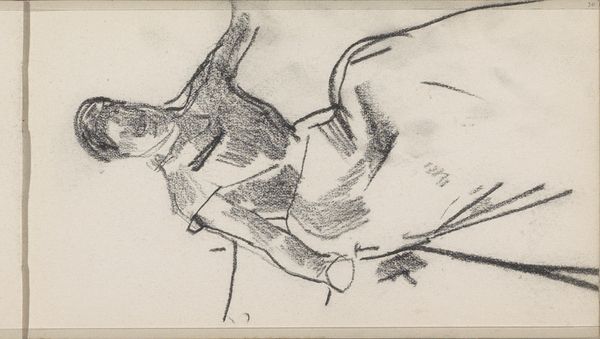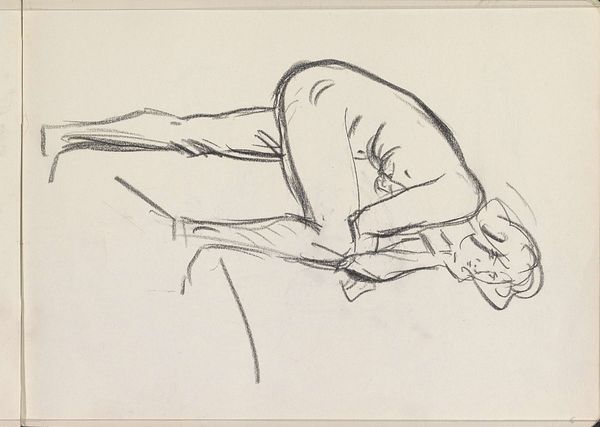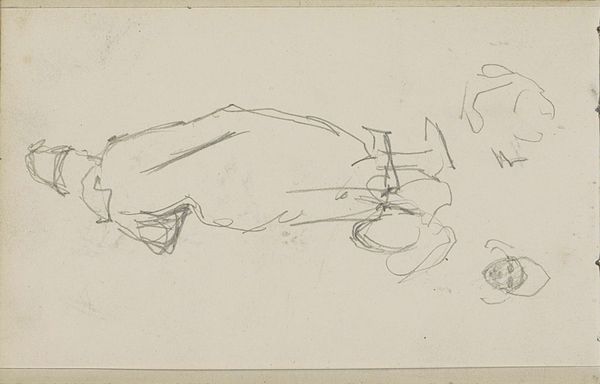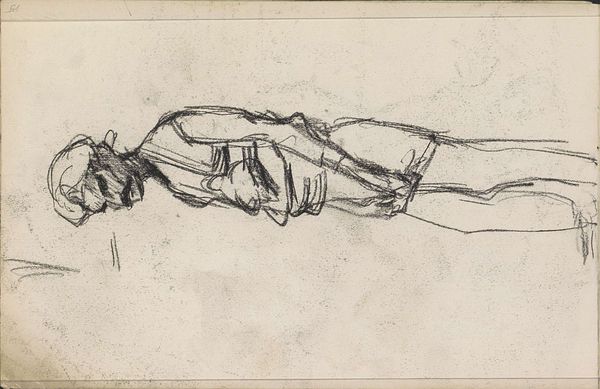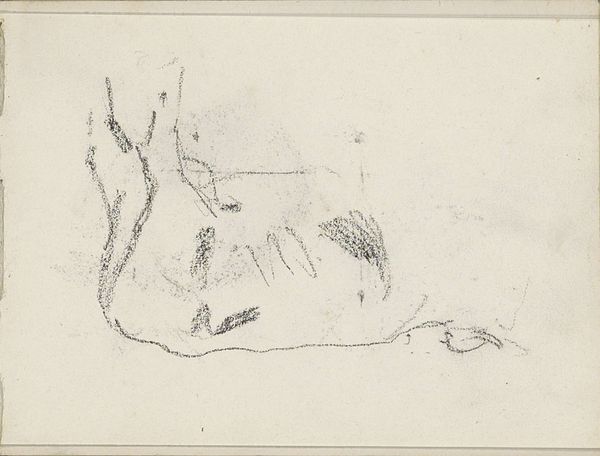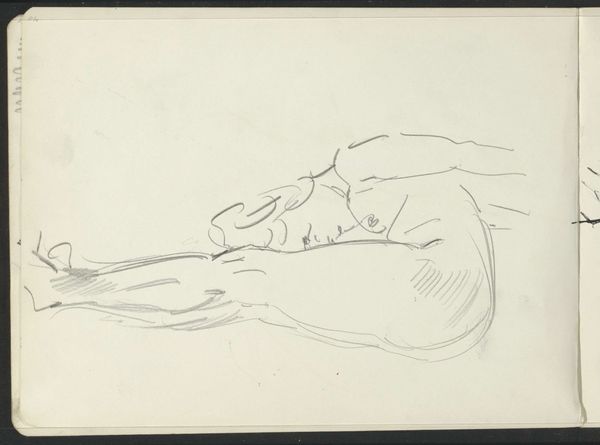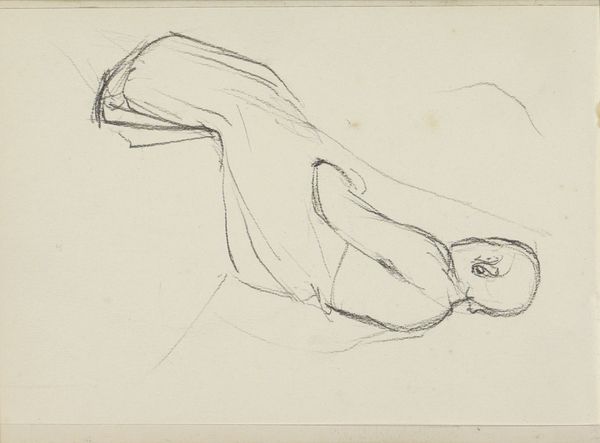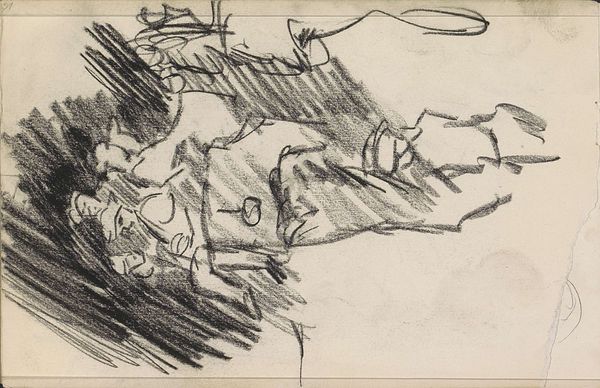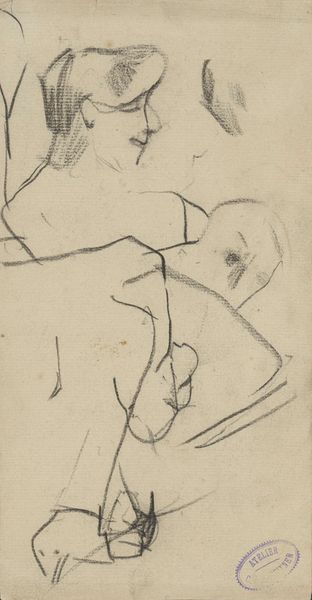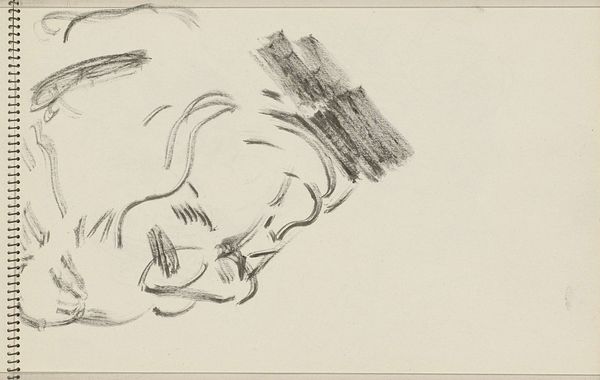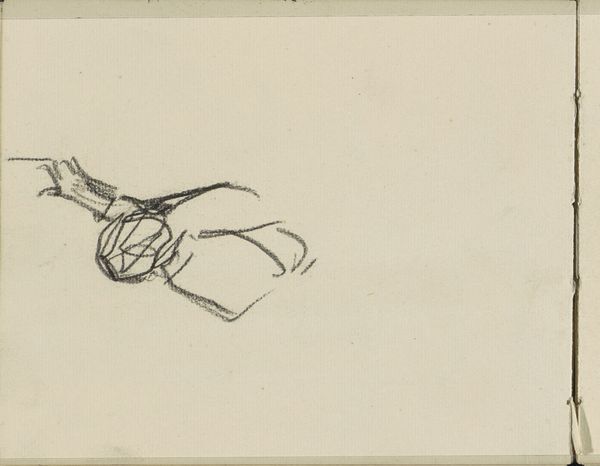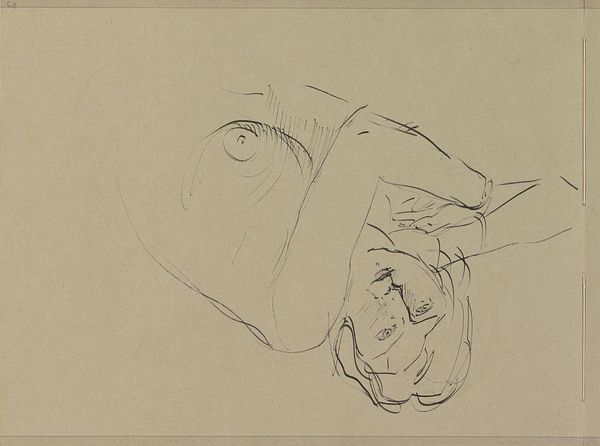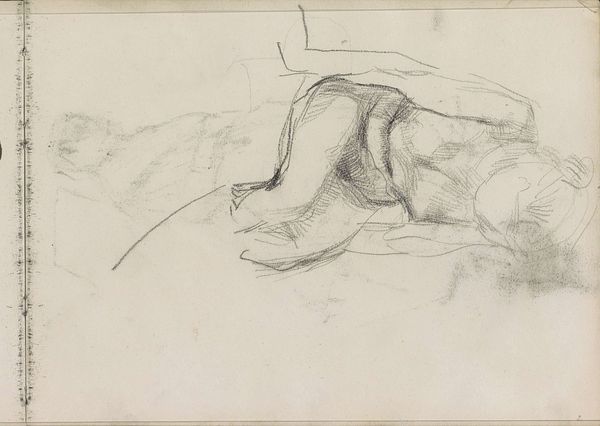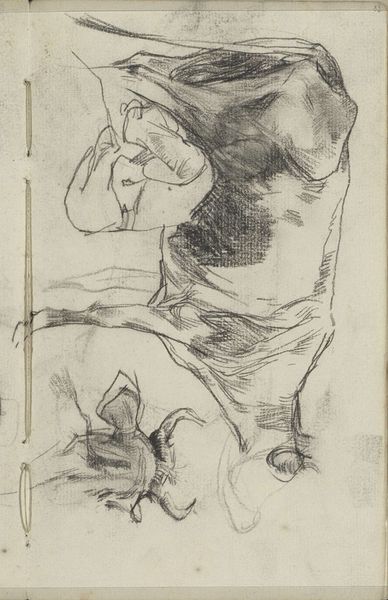
drawing, pencil
#
drawing
#
pencil sketch
#
figuration
#
pencil
#
academic-art
#
nude
Copyright: Rijks Museum: Open Domain
Curator: This pencil drawing is called "Reclining Female Nude," attributed to Isaac Israels and created sometime between 1875 and 1934. It's currently held in the collection of the Rijksmuseum. Editor: You know, my first impression is that this is a really vulnerable piece. There's a kind of unfinished quality that strips away the idealization you often see in nudes from this period. Curator: Exactly! While academic art often portrayed idealized bodies, this drawing seems more interested in capturing a fleeting moment, a sense of lived experience. It opens a dialogue about the male gaze and its historical impact on representing women. How might our contemporary understanding of body positivity reshape the way we perceive this work? Editor: It’s so interesting that you bring up body positivity. Because there’s a fluidity to the lines here that makes me feel like I’m seeing a real person, not just an objectified figure. There's a gentleness in the artist's hand, despite the frankness. I can almost feel the pressure of the pencil on the paper. Curator: The sketch's immediacy invites a critical analysis of traditional power structures inherent in nude art. By engaging with feminist theory, we can question the subject's agency and how her body is positioned within the viewer's gaze. The gaze, even here in what appears to be a sketch, must be challenged. Editor: Absolutely. And for me, personally, as an artist, I look at this and feel like I’m eavesdropping on the artist’s private study. The imperfections, the lines that go astray, they all reveal the artist's process. Curator: So, the lack of formal perfection, arguably, serves a purpose. This challenges conventional aesthetic values that celebrate only polished representations, offering a chance to interrogate historical norms regarding beauty and representation. Editor: I guess, in short, that is the freedom that strikes me. It feels fresh, somehow. Thanks for teasing out all those other points that add so much value too! Curator: And thank you for sharing that personal reflection—it enriches the understanding of art and representation so significantly.
Comments
No comments
Be the first to comment and join the conversation on the ultimate creative platform.
